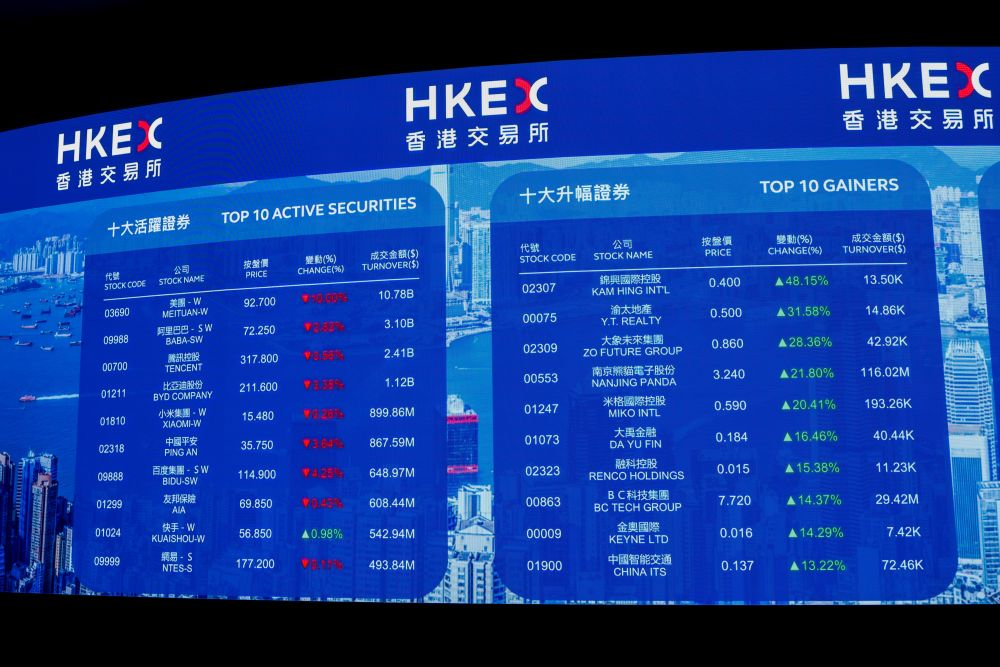The latest action by the US Securities and Exchange Commission (SEC) drives environmental, social and governance (ESG) disclosure requirements deeper into the fund or investment strategy level, a development that should make it easier for investors to determine whether a fund claiming to be ESG-focused is legitimate or just greenwashing.
In Hong Kong, the Securities and Futures Commission (SFC) was one step ahead of the SEC when it issued its ESG disclosure requirements for investment funds last June.
What’s remarkable about the SEC and SFC disclosure rules is that they are quite similar in terms of approach and areas of coverage, a development that paves the way for the standardization of ESG disclosure requirements by regulators worldwide.
US SEC chairman Gary Gensler acknowledges the need for the standardization of ESG disclosure requirements saying: “It is important that investors have consistent and comparable disclosures about asset managers’ ESG strategies so they can understand what data underlie funds’ claims and choose the right investments for them.”
While funds often disclose objective metrics to give investors a window into the criteria used by the asset managers for the fund and the data that underlie the claim, Gensler argues that “when it comes to ESG investing, though, there’s currently a huge range of what asset managers might disclose or mean by their claims.”
“When an investor reads current disclosures, it can be very difficult to understand what some funds mean when they say they’re an ESG fund,” Gensler adds. “There also is a risk that funds and investment advisers mislead investors by overstating their ESG focus.”
Although the new ESG disclosure requirements proposed by the US SEC on May 25 2022 will mean additional work for asset managers when filing the registration requirements for their funds, it will be beneficial in terms of providing an added layer of legitimacy to the funds' ESG credentials.
In Hong Kong, when the SFC published last June the amended circular providing guidance to asset managers on enhanced disclosure expectations for funds that claim to be ESG-focused, the new requirements superseded a previous version issued in 2019.
The SFC disclosure requirements are quite detailed, covering disclosure in offering documents that have to include the:
- ESG focus of the fund through a clear description of its aim, and the ESG criteria, such as filters, metrics, ratings, etc., used to meet its focus
- ESG investment strategy by describing the specific approach, methodology used, and if an exclusions approach is employed, the associated exclusions
- asset allocation showcasing the expected or minimum proportion of securities aligned with the fund's ESG focus
- ESG benchmarks
- risks or limitations (for example, reliance on third-party sources).
In addition, a climate-focused fund is required to specify its focus (for example, mitigation, adaption, positive impact), associated climate metrics and, if the fund tracks a climate benchmark, details of how the benchmark aligns with the focus.
The SFC disclosure rules also require periodic assessment and reporting on the proportion of underlying investments aligned with the ESG focus of the fund, the proportion of the fund included or excluded as a result of the ESG-related screening, comparison of the fund's ESG factors against the reference benchmark, steps taken by the manager to achieve the fund's ESG focus (for example, proxy voting), and any data estimates, limitations or trend analysis used between prior reports.
The US SEC disclosure requirements follow the same approach as the SFC by seeking to categorize certain types of ESG strategies broadly and require funds and advisers to provide more specific disclosures in fund prospectuses, annual reports and adviser brochures based on the ESG strategies they pursue.
The SEC disclosure rules also require environmentally focused funds to disclose the greenhouse gas emissions associated with their portfolio investments, while funds claiming to achieve a specific ESG impact are required to describe the impacts they seek to achieve and summarize their progress on achieving those impacts.
Also, funds that use proxy voting or other engagement with issuers as a significant means of implementing their ESG strategy are required to disclose information regarding the voting of proxies on particular ESG-related matters and information concerning their ESG engagement meetings, according to the proposed SEC disclosure rules.
“Investors should be able to drill down to see what’s under the hood of these funds,” Gensler says. “This gets to the heart of the SEC’s mission to protect investors, allowing them to allocate their capital efficiently and meet their needs.”









